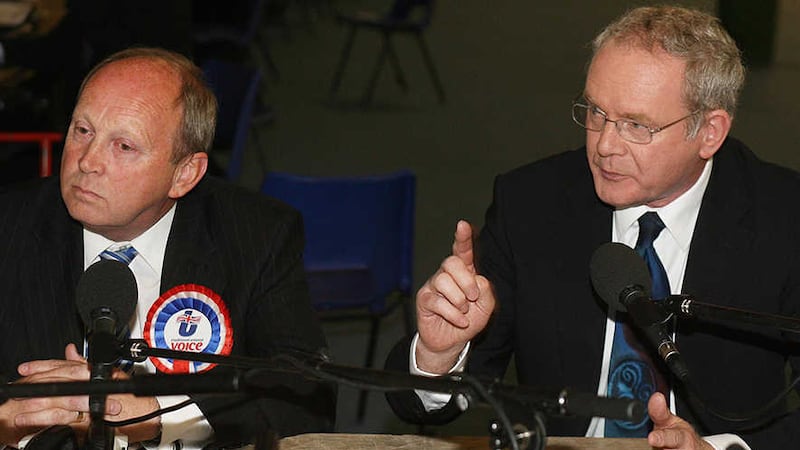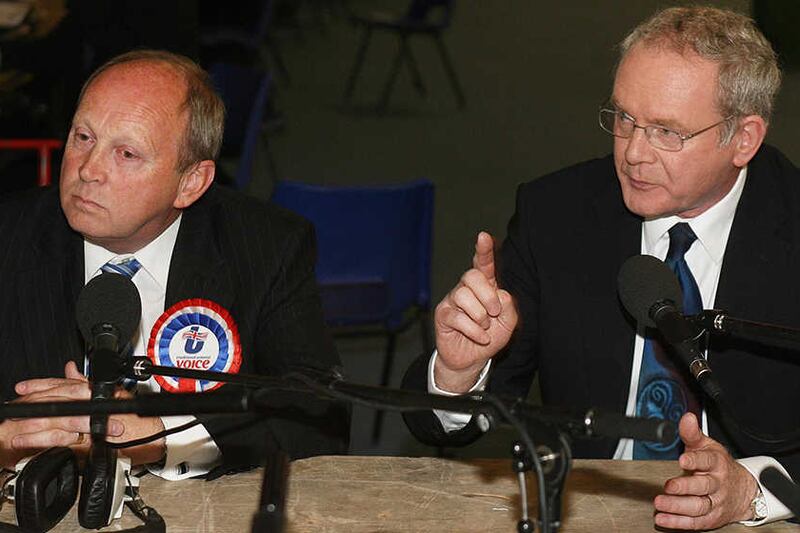The fight for your vote will begin in earnest this week, as politicians go into full scale electioneering mode.
Prepare yourself for the social media onslaught with the 'positive feedback at the doors' posts along with pictures of shiny, happy candidates all advertising online for your first preference vote.
And while we often hear that there is a demand for a middle ground party who reflect the views of those who identify as neither green or orange, the truth is the majority will still vote along those lines.
That is the majority of those registered to vote, for dissent from the status quo in the north often manifests itself in people not exercising their democratic right to vote at all, but rather expressing their outrage by ringing into radio talk shows.
Basil McCrea and the political experiment that was NI21 ended in an embarrassing disaster making it unlikely that anyone will attempt to start a new party any time in the near future. If NI21 is anything to go by that might not be a bad thing.
Of those who will vote this May the big two, in the form of Sinn Féin and the DUP, remain the parties of choice.
That, people, is democracy and has to be respected. There's a lot to be said for strength in numbers and that ability to block unfavourable legislation is one of the the big selling points both parties offer those loyal to them.
In terms of the local government elections I remain of the opinion that most people vote for councillors they believe will work hardest to solve real issues of social importance.
That's why when standing at election counts as a reporter you see all sorts of weird voting patterns, with people giving first and second preference votes based on who they trust with their rates rather than what party they represent.
Come the assembly elections, though, something changes and the tribal mentality sweeps back in.
That said I was still disappointed at Arlene Foster's comments during her party's spring conference when she whipped up fear at the prospect of a Sinn Féin first minister if people didn't vote for the DUP.
Somewhat naively I thought we'd see a different style of leadership from the doomsday scenario politics we'd come to expect during the final years of Peter Robinson's tenure.
While no one expects radical change from a new leader so close to an election, playing up to the party hardliners and resurrecting flag protest style fear in the unionist electorate is lowest common denominator politics.
And the fact remains, if Martin McGuinness was appointed first minister tomorrow he would have no more power than he has now and would be unable to push through any decisions without the approval of his deputy.
More to the point Sinn Féin and the DUP aren't in direct competition for votes, the two parties fish in completely different ponds.
Last week I was in the audience for a Nolan show discussion on the subject of first minister and it was no surprise that the animosity was between the DUP's Gregory Campbell and erstwhile colleague Jim Allister.
The TUV man wound Gregory up to the point of near spontaneous combustion about the DUP's working relationship with Sinn Féin, and therein lies the answer to the recent animosity.
The DUP don't want to lose ground to the UUP who under Mike Nesbitt's leadership played them like fiddles during the last political crisis linked to the death of former IRA man Kevin McGuigan.
The party are in very real danger of losing seats to not just the UUP who are appealing to the middle ground but also on the far right to Jim Allister who has been biting at their heels throughout the last assembly term.
For at the heart of the sectarian scaremongering around who will be first minister come May, is an internal unionist battle for supremacy.
Meanwhile, instead of empowering the unionist electorate, they are once again being terrified into submission.
Is eternal fear of the other side really the best way to seek votes?



